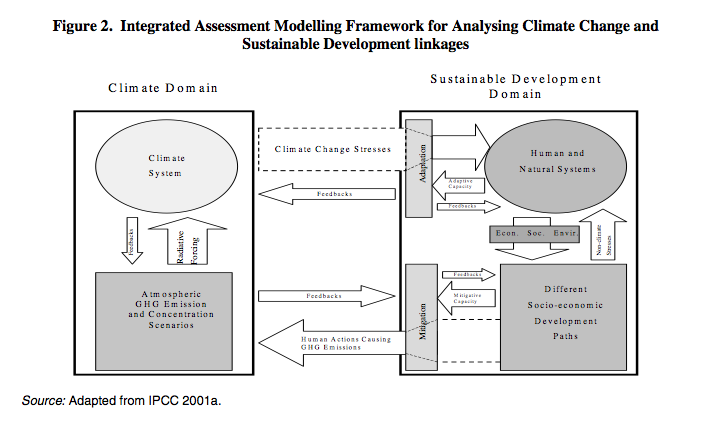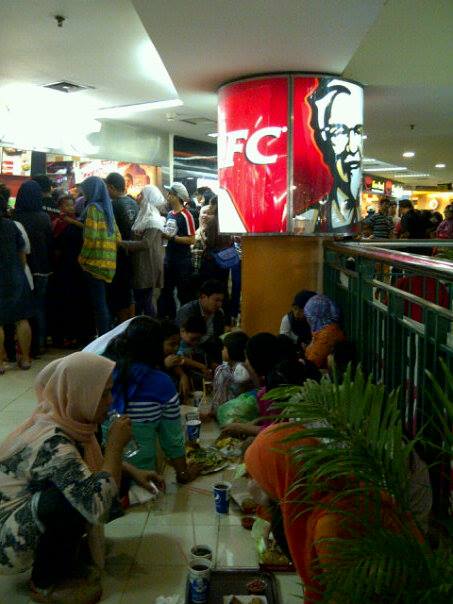The previous theme crashed! I soon changed to the most recent theme that the WordPress released. But, as you probably notice, I have not made any customization in it. I am not sure if I have the time anytime soon. So please be patient for those of you who may be uncomfortable with my slow process. THANKS! 🙂
Promoting Community Environmental Sustainability Using a Project-Based Approach
Dadit Hidayat*, Randy Stoecker**, and Heather Gates***
*****
Environmental sustainability is a topic of discussion across the globe. But getting people to act collectively on environmental sustainability, especially in local communities, is fraught with challenges. Sociologically, the challenge is one of understanding how collective action works in order to mobilize community members around environmental issues. An important sociological aspect of mobilizing people for collective action is framing those issues effectively (see Benford and Snow, 2000). Frames are toolboxes of interpretation that help us make sense of the world. We have frames of not just what is right and wrong, but even about what does or does not exist. For example, people have various frames of what “sustainable” is. One person might interpret ethanol as sustainable, comparing it to fossil fuels, while another might interpret it as unsustainable based on an analysis of the energy required to grow and transform the corn into ethanol. Activists weigh into these controversies, attempting to bridge their frames with community members’ frames or transform community members’ frames to fit with the activists’ frames.
Continue reading Promoting Community Environmental Sustainability Using a Project-Based Approach
A Step Richer, Scholarly and Administratively
December 20th was when all of the senior capstone courses for Environmental Studies major at the Nelson Institute gathered. It is the final day of the semester for our collaborative project with the South Madison Farmers’ Market. In every course that I was part of, I have always learned new things, and I could only be grateful for the opportunity.
#NelsonStudent #cbpr #southmadison #farmersmarket finalizing their #engagedscholarship project #WiIdea pic.twitter.com/k2GFsImiSr
— Dadit Hidayat (@DaditHidayat) December 20, 2013
Continue reading A Step Richer, Scholarly and Administratively
The most important in collaboration is, to me, being patient.
According to a MacBookPro’s dictionary :), here it is a definition of ‘patient’ as an adjective:
able to accept or tolerate delays, problems, or suffering without becoming annoyed or anxious.
 Last Thursday in our community-based research (CBR) class, we reviewed a recruitment email that needed to be sent to our research subjects. At one point I thought, let’s just use this version and move forward. But students were starting to offer inputs share discomfort with the original email version. Feeling the energy from students in improving the email, I then asked, “do you want to split and work in two smaller groups so that we can work on two different tasks, or do you want to stay in a bigger group and work on this email together?” Students anonymously indicated their desire to stay together, and I agree. Consequently, I had to delay offering a training on how to create an encryption folder with a TrueCrypt software to students for the third or even fourth times, which was completely fine to me.
Last Thursday in our community-based research (CBR) class, we reviewed a recruitment email that needed to be sent to our research subjects. At one point I thought, let’s just use this version and move forward. But students were starting to offer inputs share discomfort with the original email version. Feeling the energy from students in improving the email, I then asked, “do you want to split and work in two smaller groups so that we can work on two different tasks, or do you want to stay in a bigger group and work on this email together?” Students anonymously indicated their desire to stay together, and I agree. Consequently, I had to delay offering a training on how to create an encryption folder with a TrueCrypt software to students for the third or even fourth times, which was completely fine to me.
Continue reading The most important in collaboration is, to me, being patient.
This is why literature review may not be necessary in a full semester CBR course.
This semester I am co-instructing a community-based research course with the South Madison Farmers’ Market. Last week in the Midwest Knowledge Mobilization Network meeting, I was sharing with one of the event’s participants that we would not ask students to conduct a literature review as part of our research report. I explained that literature review can be done anytime and they already have the skills in doing that kind of work.
This participant was surprised, and thought that literature review should be part of the research activities. This participant went on to say that literature review helped inform researchers to”negotiate” the scope of “collaborative” research with their community partner.
I have been doing some thinking since then and thought there are a couple important points.
First, one of the main purposes of offering a community-based research course is to give opportunities to students to gain knowledge from community. Literature review will violate this spirit since students will “still” be gaining book or literature knowledge. Please read also what Lynet Uttal suggested about local theorizing.
Second, community-based research is an attempt to direct academic research that addresses real community problems. Community know the exact problems that need solving. Researchers do not negotiate on that. Rather, researchers work together with community in framing the problem to a research question that can produce actionable research findings. That is, research findings that can be used immediately by community to support their program planning.
I welcome your thoughts in this.
The connection between climate change and sustainability

I thought I would share this, maybe helpful to some of you. What I need to spend more is how adaptation and mitigation can be clearly defined. It is absolutely right that IPCC says “Both impacts and emissions, for example, are linked in complex ways to underlying socio-economic and technological development paths.” But I think it is for that reason that adaptation is not necessarily limited to reducing the impacts of climate stresses on humans and natural system, while mitigation is about reducing green house gas emissions.
Food and Ramadhan: How do you value the food you have for breaking your fast?

In my facebook news feed this morning, there was a photo showing how Indonesians were lining up in a restaurant to make a food order for them to break their fast (buka puasa) during the month of Ramadhan. Continue reading Food and Ramadhan: How do you value the food you have for breaking your fast?